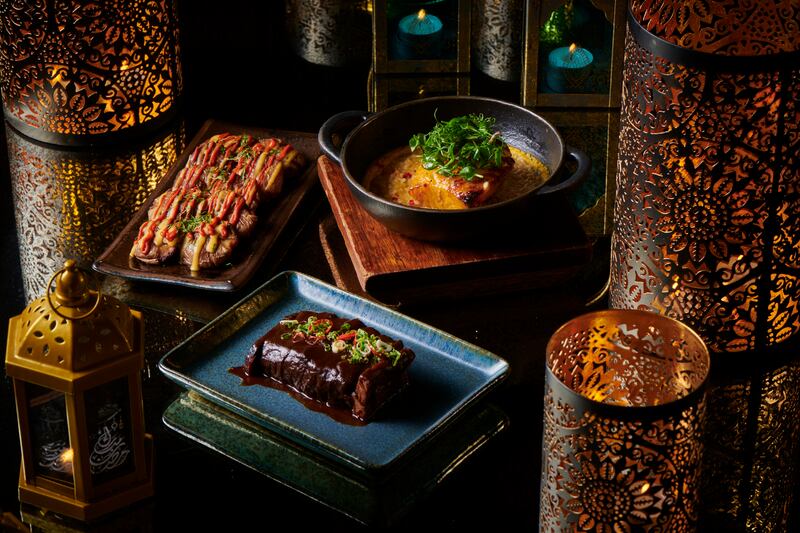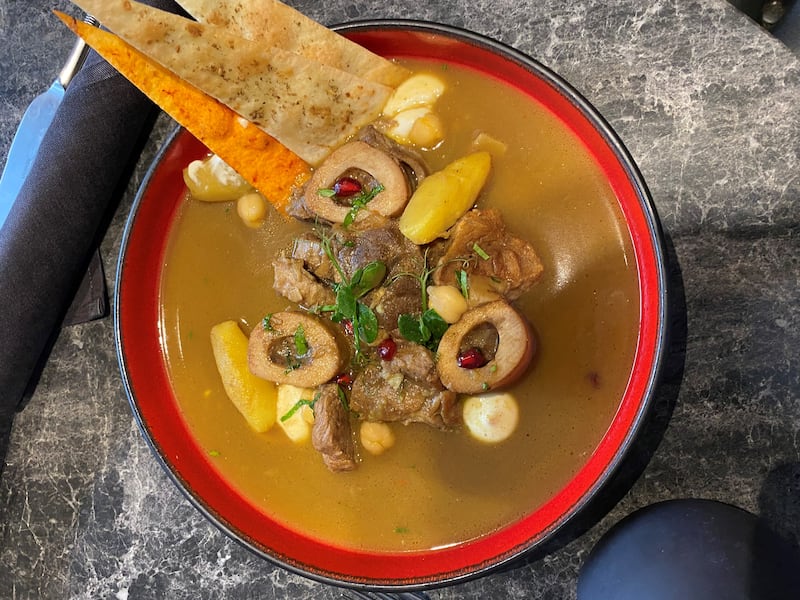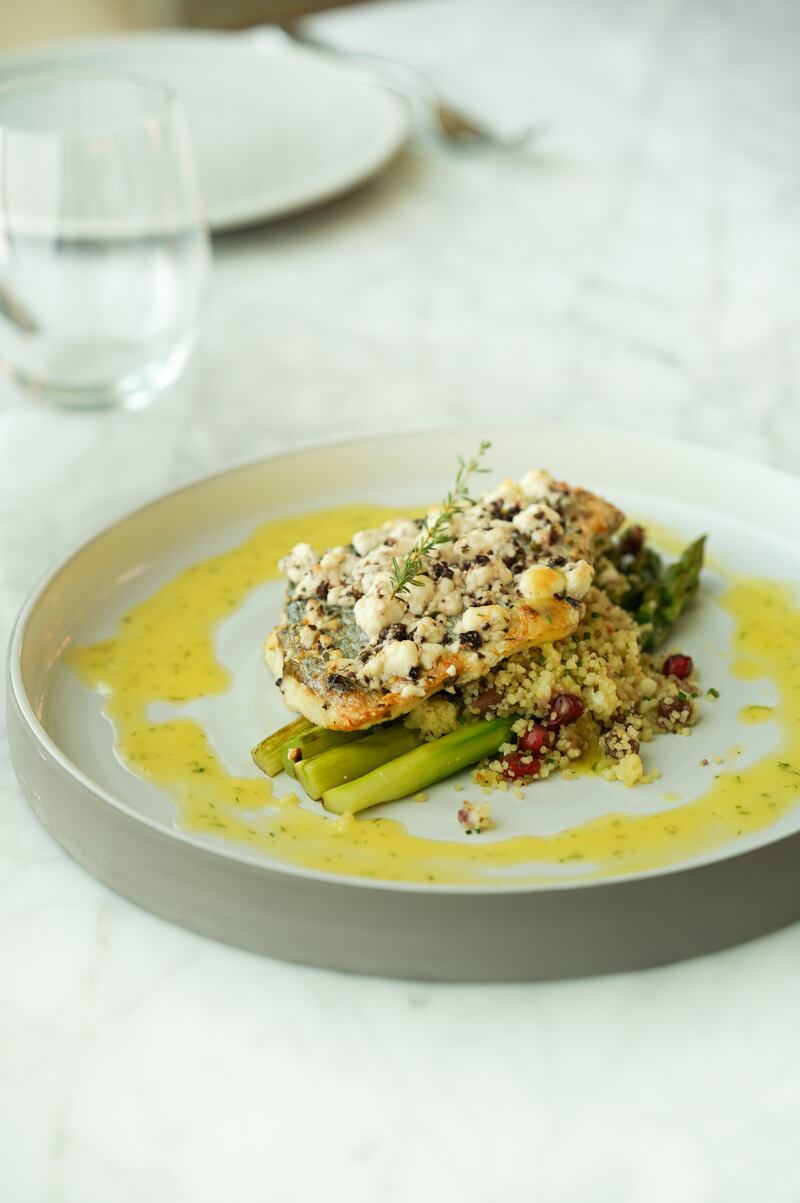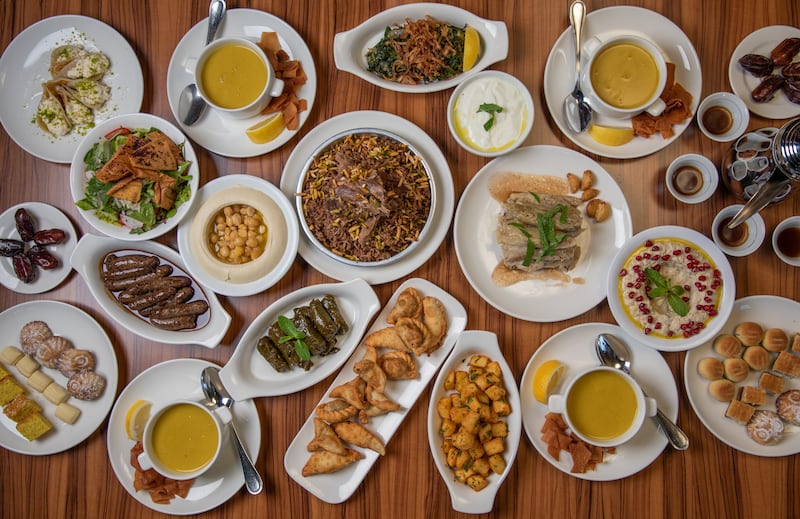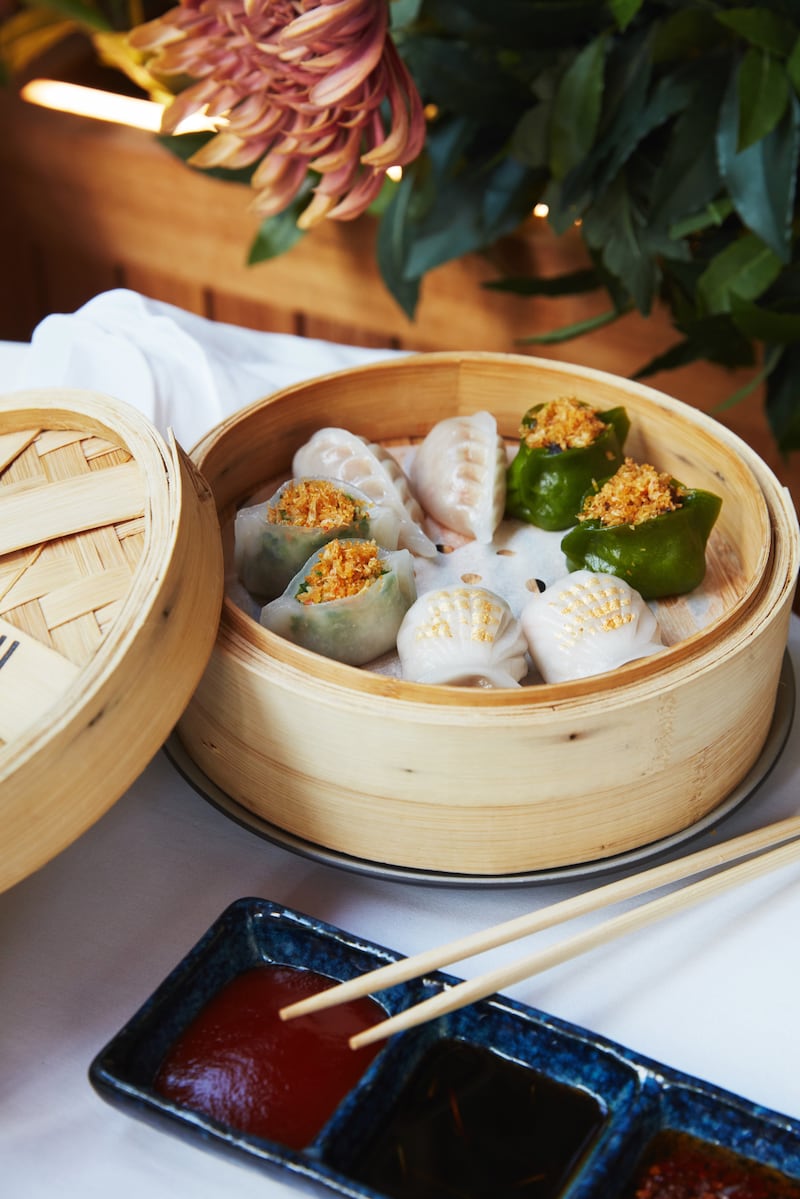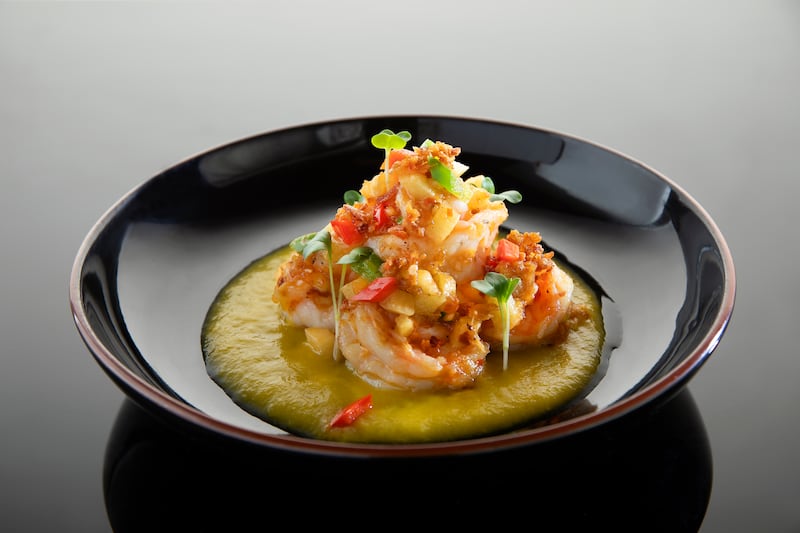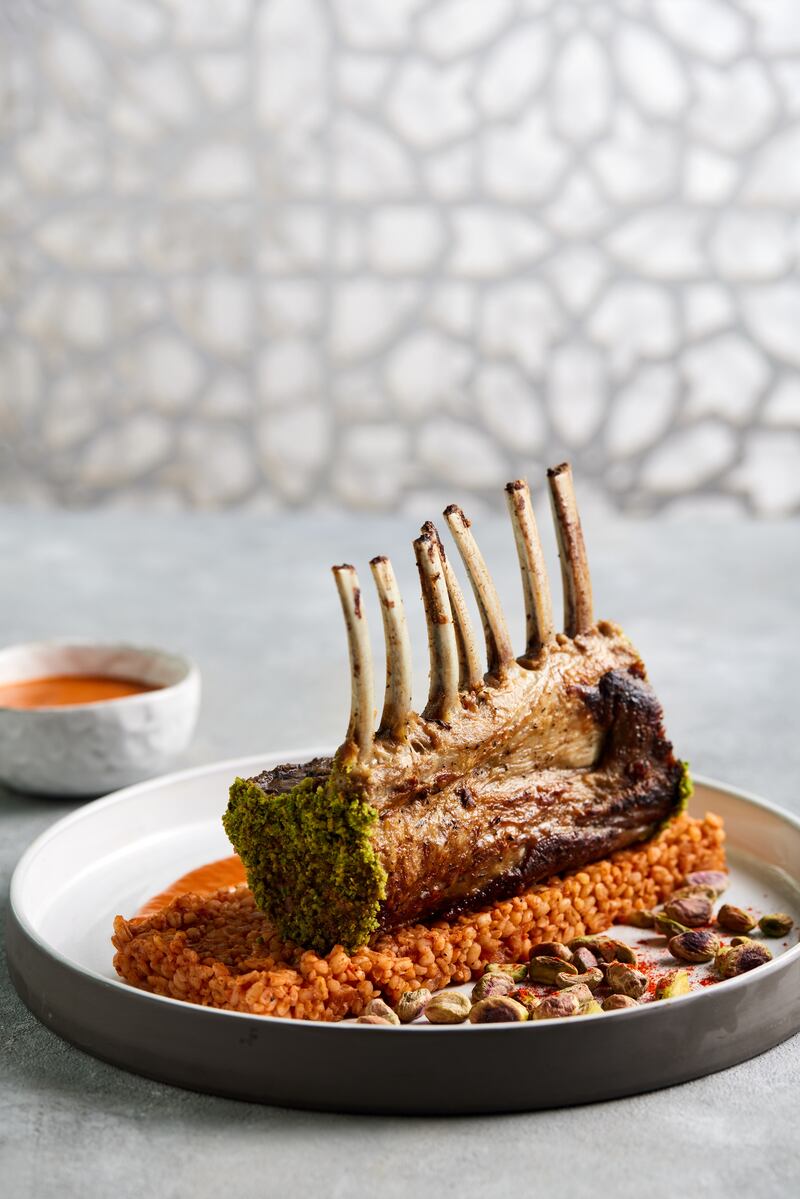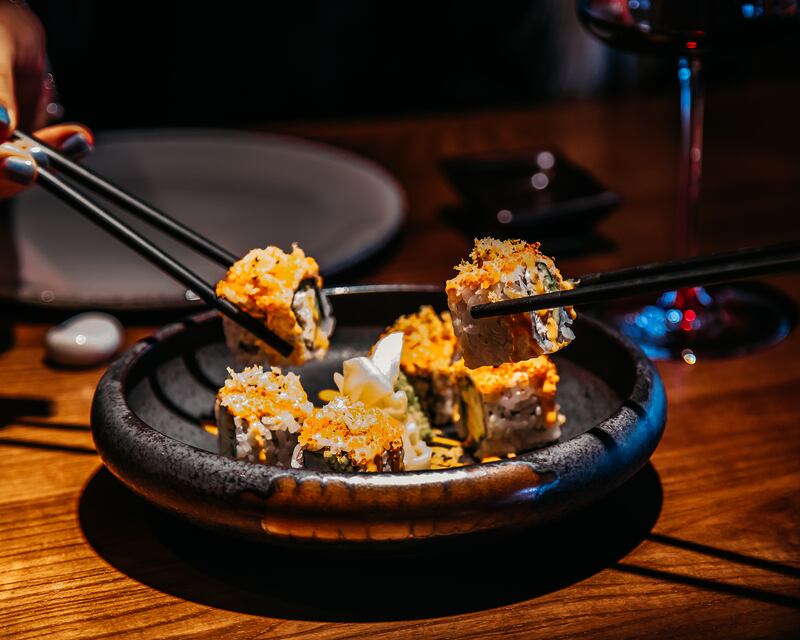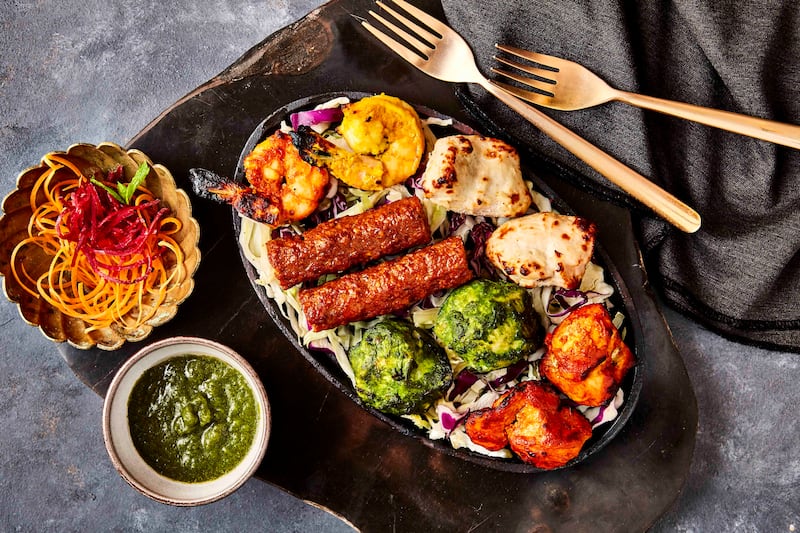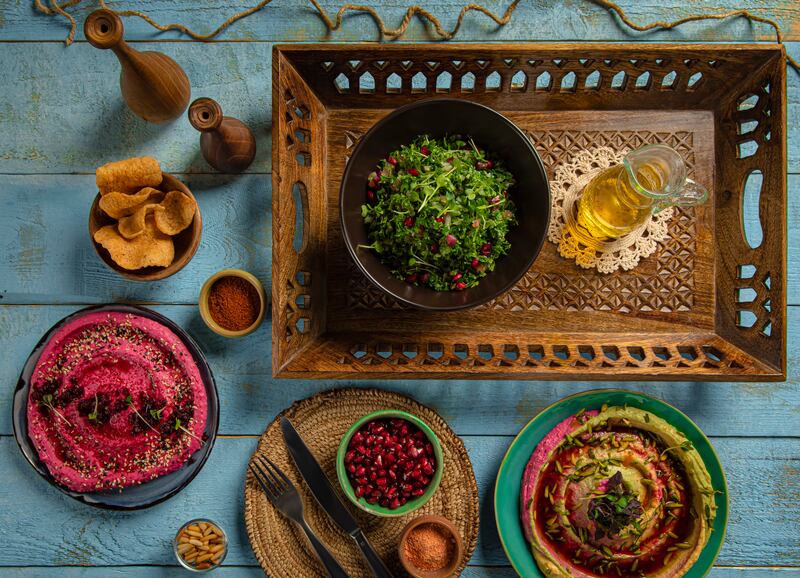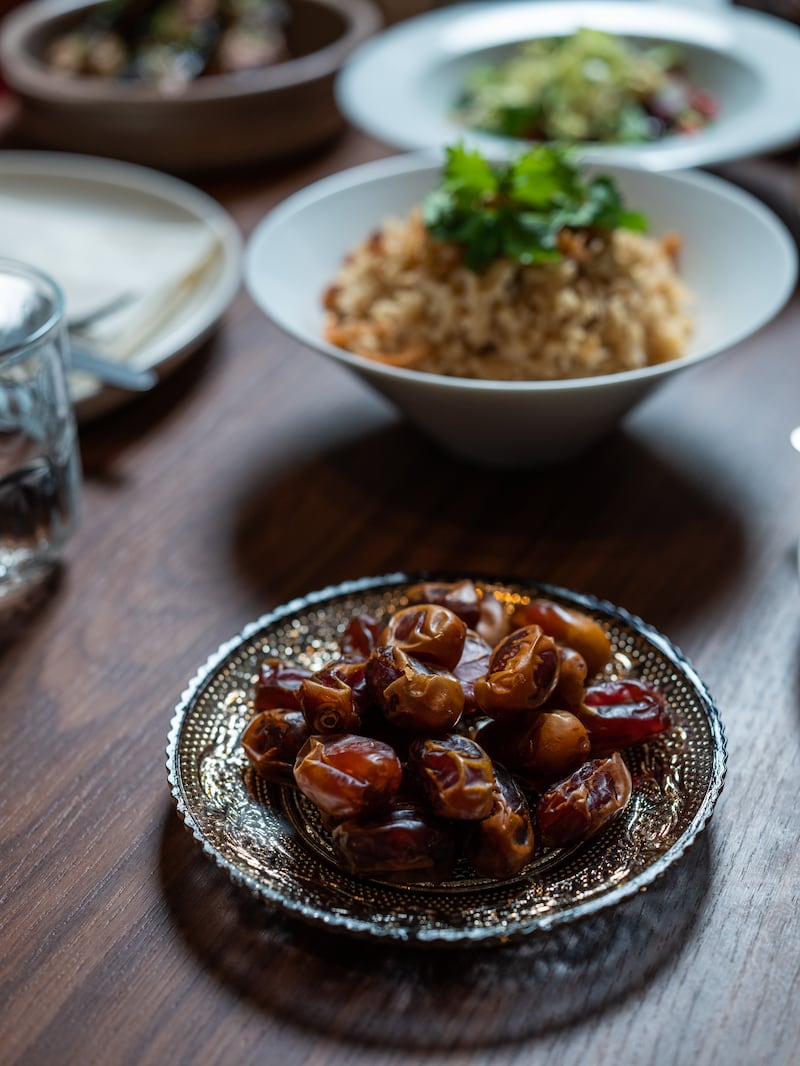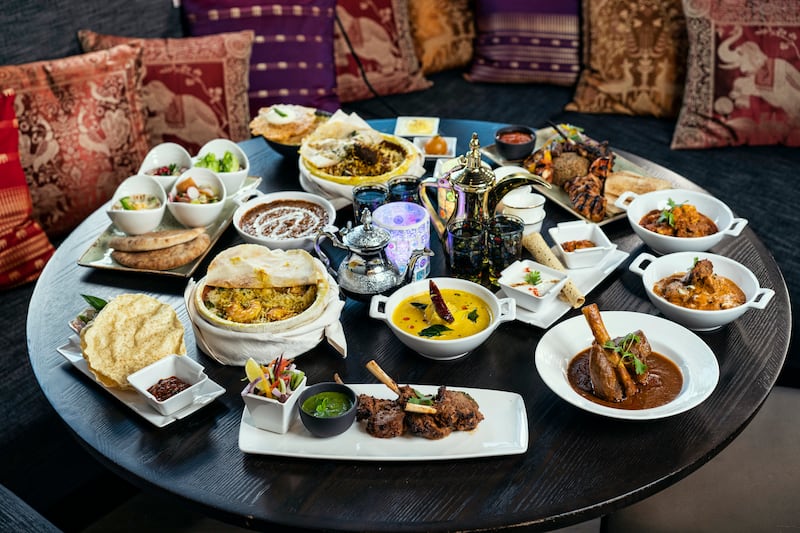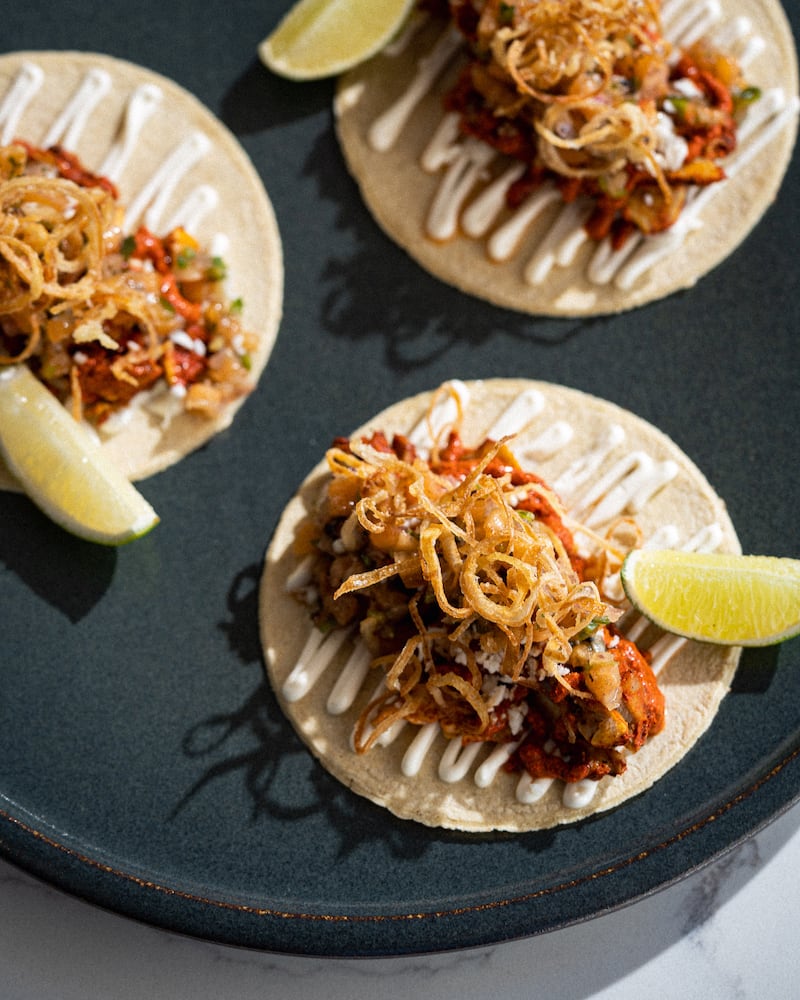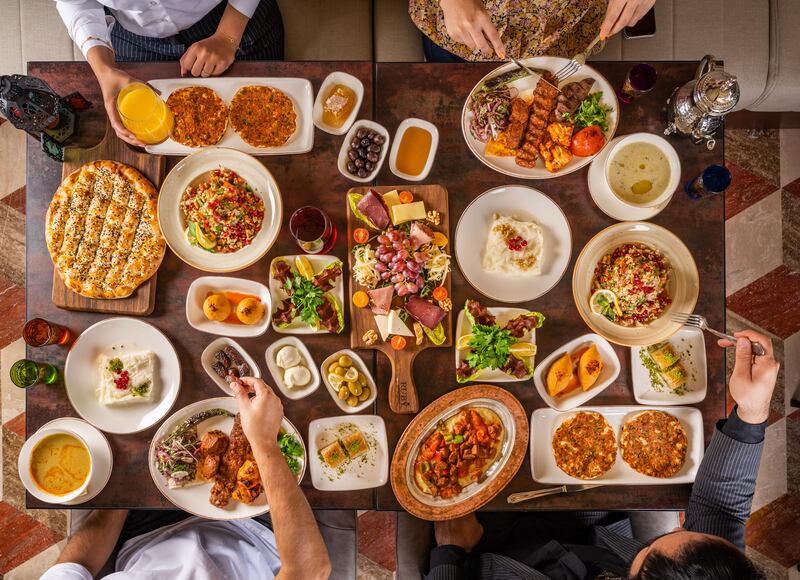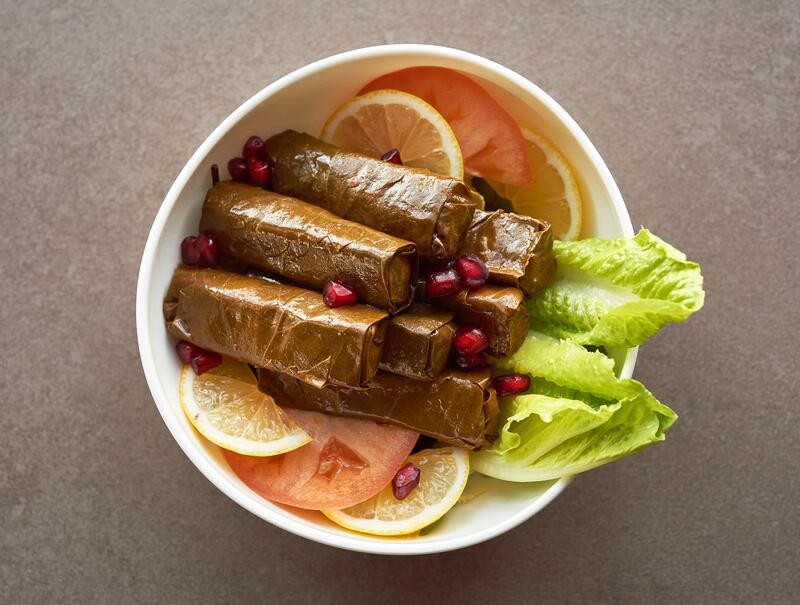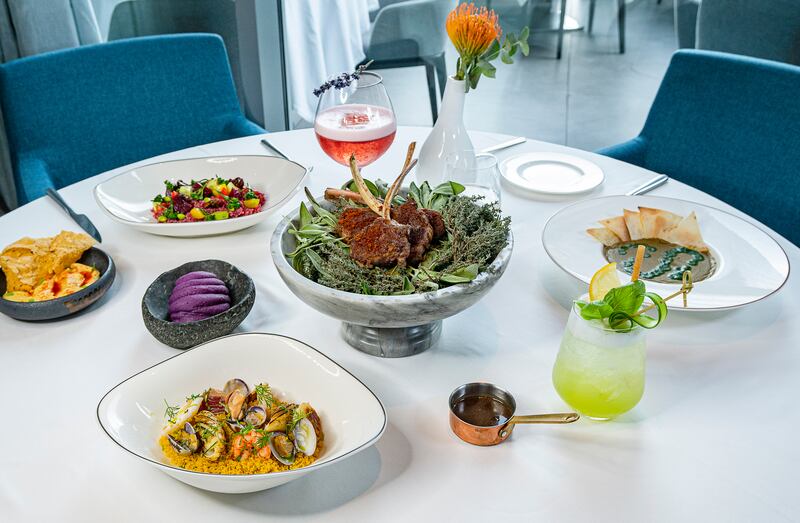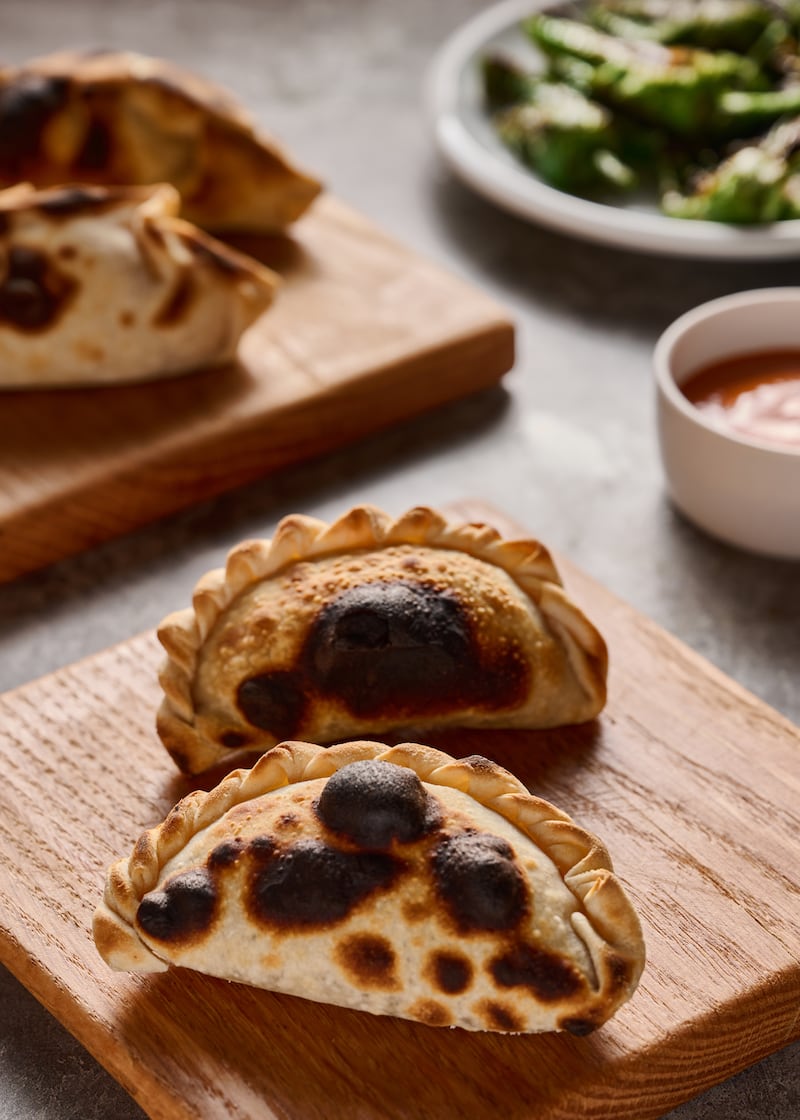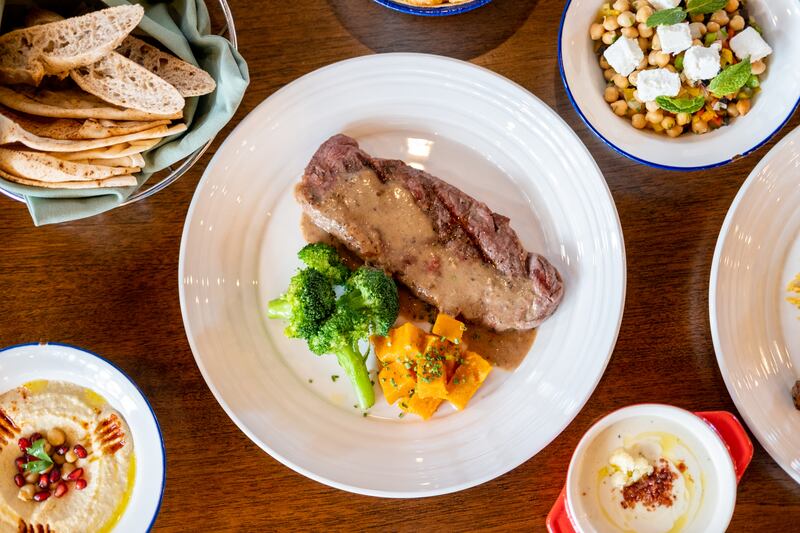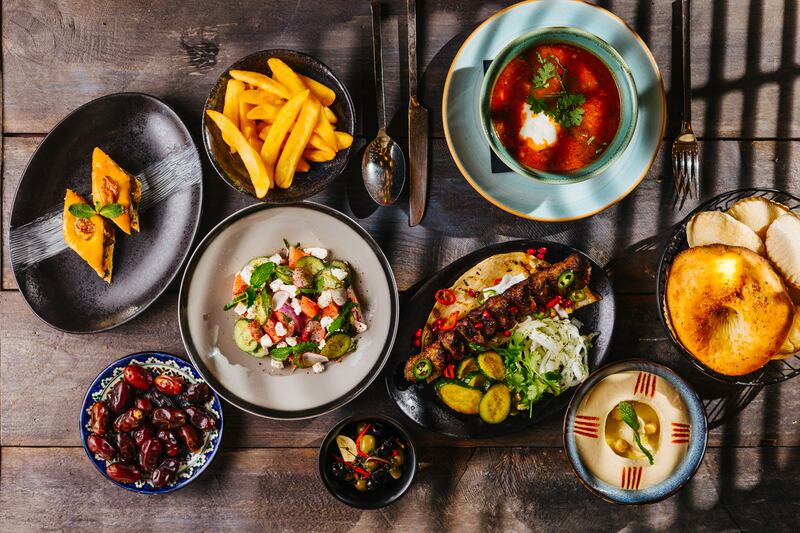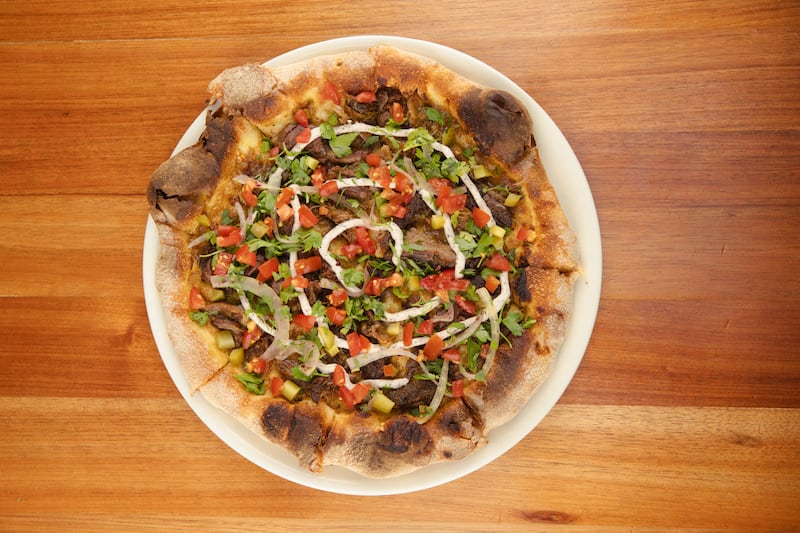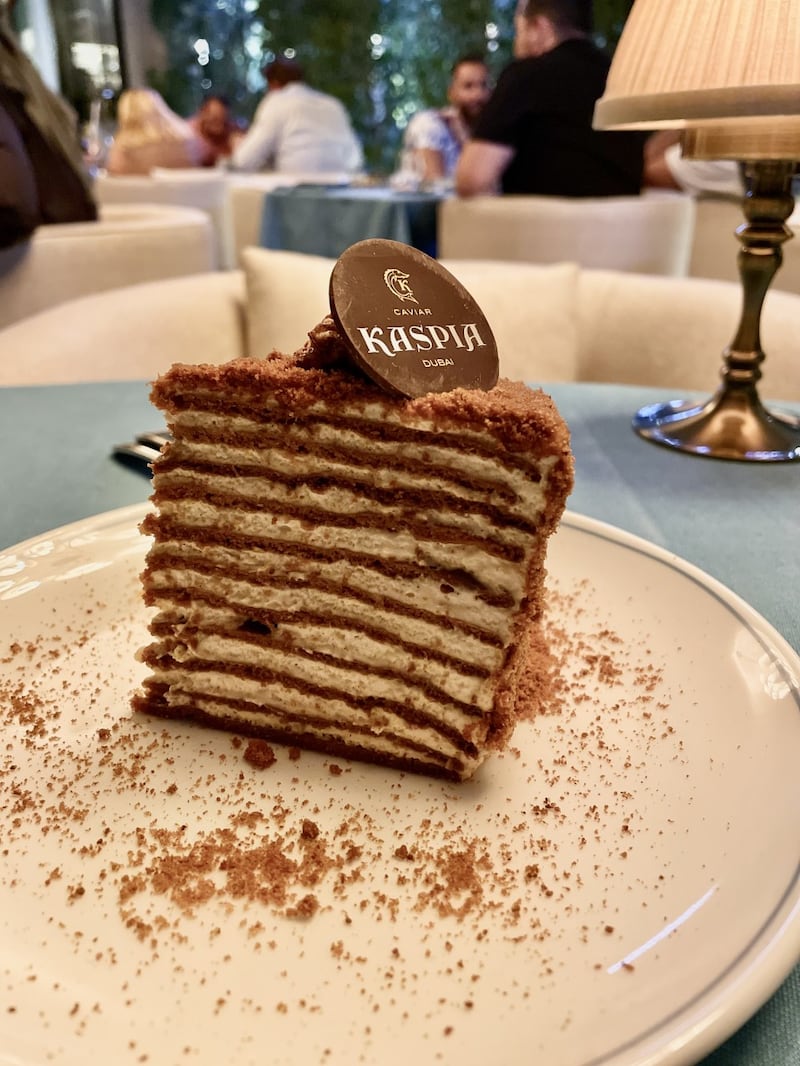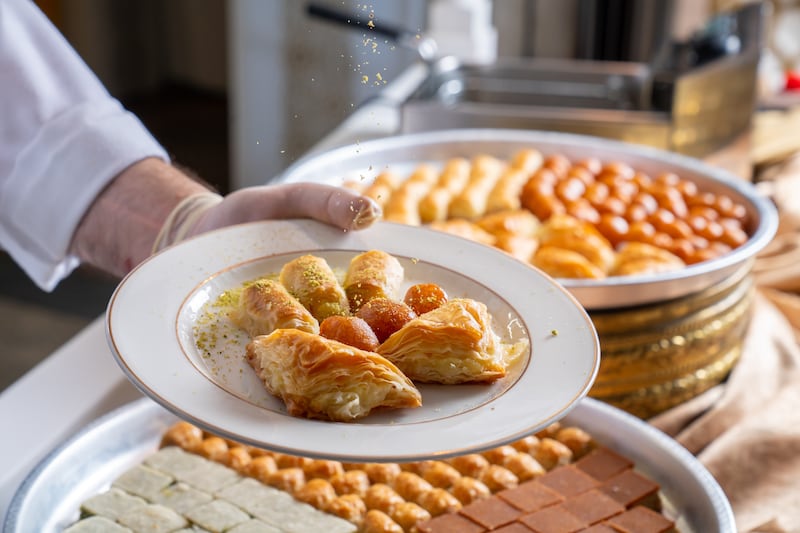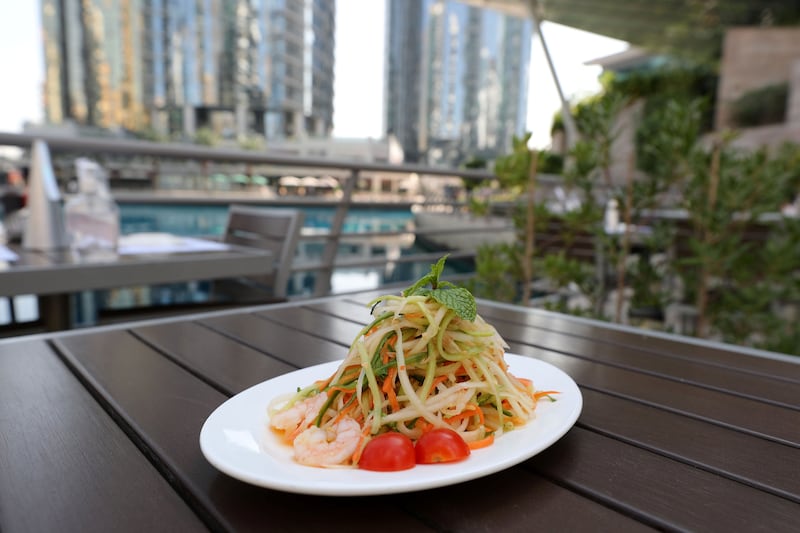While hotel buffets dominated the culinary landscape during Ramadan but five years ago, iftar meals at fine-dining restaurants are all the rage now.
When the tide began to turn, stylish Peruvian restaurant Coya, which has branches in Abu Dhabi and Dubai, became an early adopter of the concept and regularly designed well-curated menus hearty enough to satiate the keenest of appetites, while introducing diners to a vibrant mix of Latin and Asian culinary traditions.
This Ramadan is no different, with both Coya locations serving up a four-course meal comprising a soup, five starters, a choice of main and dessert. A selection of dates, edamame, water and fresh juices are also served prior to the meal.
What to expect and where to sit?
A feature drawing UAE foodies to Coya Abu Dhabi, located at The Galleria on Al Maryah Island, is the curiosity associated with its “Peruvian fusion” concept.
That intrigue is supported by the venue’s low-key staircase (a lift is also available) leading you to an elegant dining hall that marries a dim intimacy with the earthy vibes of the Amazon.
The low lighting enhances the mystique of the space, which features lots of plant life, artistic carvings and distressed wooden cabinets, as well as elegant embroidered dining seats.
With iftar usually shared by relatively large groups, those looking for a cosier meal should look for smaller tables alongside the floor-to-ceiling windows facing Al Maryah Island's promenade.
The menu
It all begins on a sweet note courtesy of the sukkari dates. Loosely named after the Arabic word for sugar, these premium fruits are known for their moist and honey-like sweetness.
My savoury palate means I spend more time with the piping-hot edamame, which are well-salted.
Presented with a choice of tomato or pumpkin soup, I opt for the former and I'm rewarded with zesty flavours because of the rich use of vine tomatoes and goat's cheese.
My dining partner chooses the equally impactful pumpkin soup, which benefits from the deep flavours of Manchego cheese and chives.
In hindsight, the extra-modest servings are a wise call and they prepare us for the extensive array of appetisers to come.
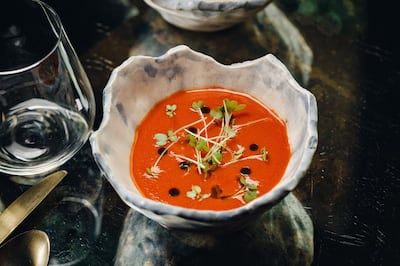
Numbering nearly half a dozen and served in two lots, it is this course that makes me begin to understand the Peruvian fusion concept. There is no Frankenstein-esque mash-up of South American and Asian dishes. The connections, instead, make themselves known courtesy of the rich flavours.
The Wagyu beef bao, as an example, pairs expertly moist Japanese beef with a sweet and tart passion fruit pickled cucumber dressing, while the salmon maki roll packs a fruity heat from the Amarillo chilli.
Bigger flavours and more crunch are found in the cucumber and apple salad, which comes with a bold dressing of miso, coriander, pickled jalapeno, sesame oil and almonds. Those with peanut allergies can ask for a version without the almonds.
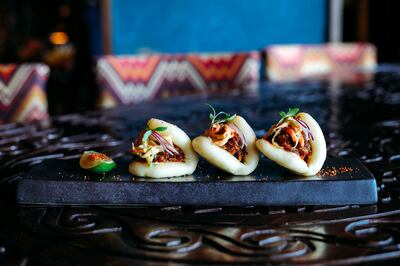
Other appetisers include four skewers of relatively fiery chilli tiger prawns and crispy yucca served in croquette form.
When it comes to the mains, choices include grilled salmon with miso; grilled corn-fed baby chicken; quinoa and pumpkin iron pot (the sole veggie option); Chilean sea bass rice iron pot; and slow-cooked beef ribs.
Our choice of the last two arrive in just over 10 minutes. Upon reflection, I should have opted out of the slow-cooked beef ribs and ordered the salmon instead.
The transition from the Wagyu baos in the appetiser to the ribs, no matter how tender and sweet they were, is too much even for a hearty and hungry carnivore like myself.
Standout dish
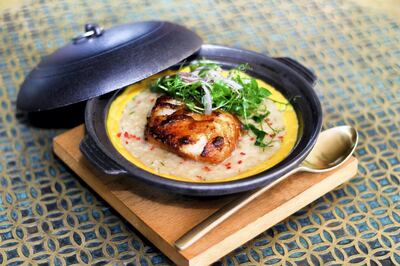
The Chilean sea bass rice iron pot is an absolute winner, and comes with a hearty sauce that is as impactful as it is surprising.
The pleasure lies in the sweet and spice combination of the sauce, which at first appears to be saffron, but is a sweetcorn puree mixed with chilli.
Soaking it all up are short, thick grains of bomba rice, which is typically used for soul-nourishing stews and paella.
I break up the tender sea bass by spoon and mix it into the rice and puree. The end result is a strong suite of flavours that are at once sweet, spicy and smoky.
One dish I wouldn't reorder is the crispy yucca from the appetiser selection. Slightly oily and starchy and with an indistinguishable flavour, it feels like a glorified version of a potato gem. While it may work as a street-food snack, it doesn’t quite gel with the adventurous flavours of this iftar menu at large.
Value for money and contact information
A quick bar code scan of the a la carte menu confirms Coya Abu Dhabi and Dubai’s iftar set menus offer bang for your buck.
Five of the appetiser dishes, if ordered separately, would cover the set-menu price of Dh219 and Dh250, respectively for both iftar menus.
However, a sore point could be how short-lived the deal is throughout the holy month. With sunset falling from about 6.40pm to 6.50pm throughout Ramadan, diners need to ensure they are on time, with last orders for this set menu being 7.45pm for Coya Abu Dhabi and 7.30pm for Coya Dubai.
To make a reservation, call Coya Abu Dhabi on 02 306 7000 and Coya Dubai on 04 316 9600.
This review was conducted at the invitation of the restaurant
Scroll through our gallery of 30 iftars to try during Ramadan 2022
